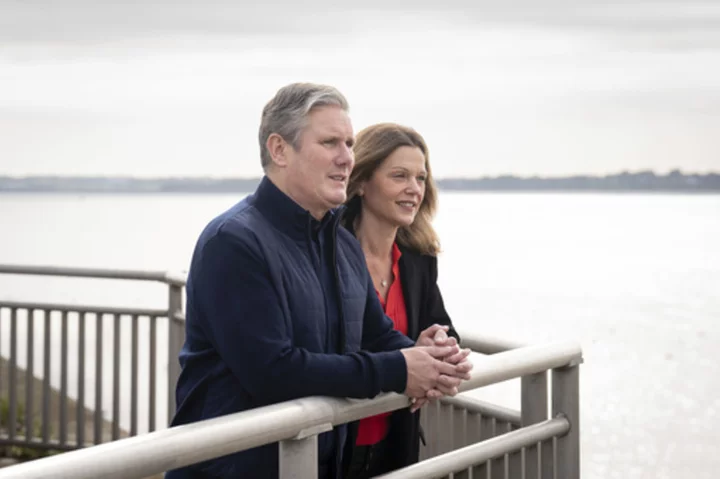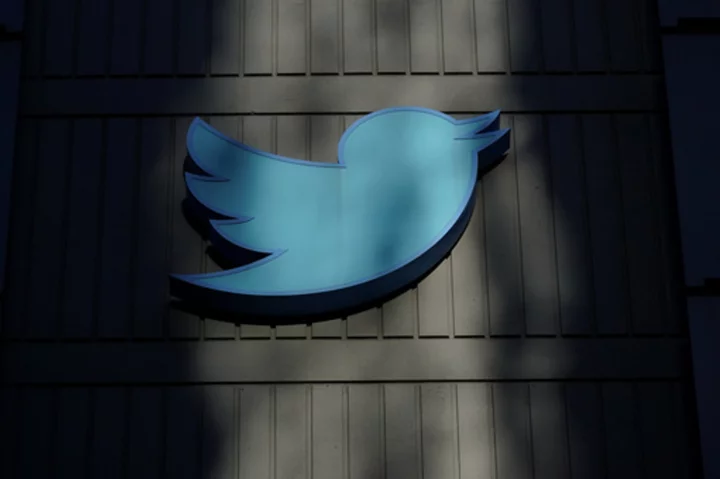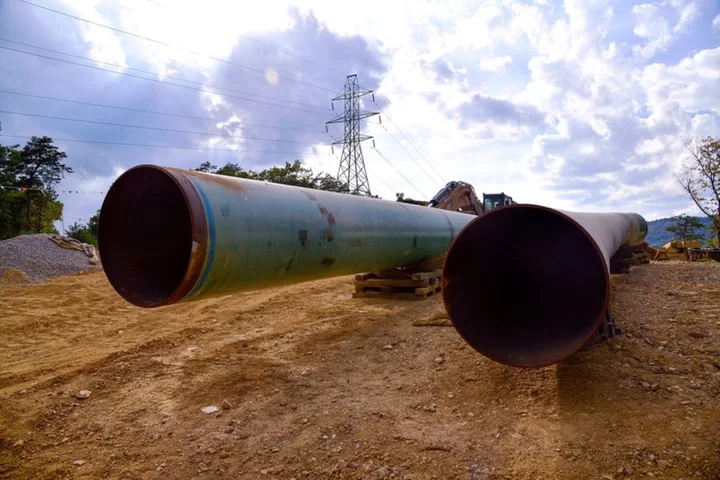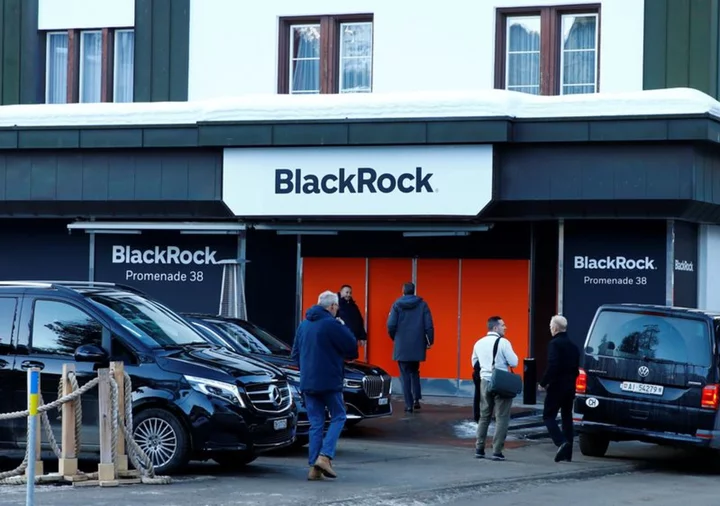LIVERPOOL, England (AP) — U.K. Labour Party leader Keir Starmer delivers a speech on Tuesday that amounts to a public job interview for the post of prime minister. He'll set out to answer the question in many voters’ minds: “Why Labour?”
Starmer is addressing the opposition party's annual conference, likely the last before a national election next year. He needs to persuade voters fed up with economic stagnation and political turmoil to switch allegiance to his party, which has been out of office since 2010.
He plans to pledge “a decade of national renewal,” after what he depicts as 13 years of decline under the Conservatives.
“What is broken can be repaired, what is ruined can be rebuilt,” Starmer will say, according to the party.
Starmer’s speech to the conference in Liverpool is a key moment for a politician who has managed to unite a fractious party and gain a substantial lead in opinion polls, but remains a blank slate to many voters. A barrister and former head of the national prosecution service, he’s widely seen as managerial and a bit dull.
Labour has lost four straight national elections. Its landslide 1997 election victory under Tony Blair — the peak of its popularity — was a quarter-century ago and in the last national election in 2019, voters handed Labour its worst drubbing since 1935.
But with an election due next year, polls put Labour as much as 20 points ahead of the governing Conservative Party.
Starmer, elected leader in 2020, steered the social democratic party back toward the political middle ground after the divisive tenure of predecessor Jeremy Corbyn, a staunch socialist who advocated nationalization of key industries and infrastructure.
Starmer’s actions angered some grassroots Labour members who want a bolder agenda, but it has revived the party’s poll ratings.
Underscoring the way the party has changed, Starmer plans to say he leads “a changed Labour Party, no longer in thrall to gesture politics, no longer a party of protest. … Those days are done. We will never go back.”
In a sign that corporate Britain is warming to Labour, companies thronged to the conference in The Beatles' birthplace of Liverpool, buying space in the exhibition hall, sponsoring panel discussions and attending a business forum with party leaders. The mood was noticeably buzzier than at the Conservatives’ muted conference last week in Manchester.
Labour is trying to walk a delicate line. Party leaders want to convince voters it can ease the U.K.’s chronic housing crisis and repair its fraying public services, especially the creaking, overburdened state-funded National Health Service – but without imposing tax increases on the public.
Labour economy spokeswoman Rachel Reeves told the conference on Monday that a Labour government would “tax fairly and spend wisely,” using economic growth to fund public services and boosting investment through a new national wealth fund. She pledged to build 1.5 million homes to ease Britain’s chronic housing crisis and repair the creaking, overburdened state-funded National Health Service.
Former Cabinet minister Peter Mandelson, one of the architects of Blair’s election victories, said Starmer has to “make an offer the country feels it can’t refuse.”
“He’s got to bring home to working people in this country what a difference a Labour government will make, both in the short term but more seriously in the long term,” Mandelson told The Associated Press. “And I think he will do that. At the moment people are cynical about the difference any government can make. … He’s got to give them hope mixed with realism.”









